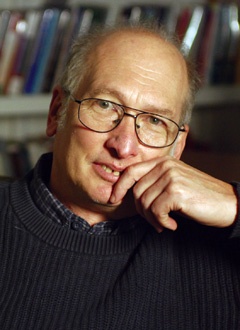
In today's post, Heinemann author and guest blogger Thomas Newkirk floats a new kind of assessment.
"Show Me Your Pig": A New Motto for Assessment
by Thomas Newkirk
Our school district, as I write, is about to receive the results of the new Smarter Balanced tests, mandated by the state (and effectively, the federal government). The opportunity cost of these tests—time diverted from other learning activities—has been enormous, and the technology costs for our small system have surely reached six figures. A classic unfunded mandate.
And for what? What gems, what insights, what revelations, can possible justify this commitment?
The great problem with these, and any standardized test, is that they fail to measure the qualities truly needed in this emerging century, or any century for that matter. Simply put, we need students who can create things; we need performances and displays and innovations. Thinking outside the box—not checking the box. Standardized tests, even the ones like Smarter Balanced that drew on millions of taxpayer dollars, are not good at measuring real performance. They never have been and they never will be. Creativity by definition is doing something unexpected, and standardized tests are terrible at dealing with novelty.
So I would like to propose a new motto for assessment: “show me your pig.”
Even then I had a sneaking admiration for my peers who would put their work on display and allow it to be judged.
I’m thinking of the county fairs in my hometown of Ashland, Ohio. Ashland served a big farm community, and the high school had a big 4-H program. At county fair time, barns were dedicated to the showing of their livestock. It all seemed smelly and monotonous to me, a townie, but even then I had a sneaking admiration for my peers who would put their work on display and allow it to be judged.
Display—allowing your work to be viewed by your community—has long been a powerful form of assessment. In fact, it has long been a binding thread of community life. Recitals, spelling bees, athletic contests, plays, readings, speech-making, science fairs, and art shows—all take learning beyond the classroom and allow it to be appreciated and evaluated. Displays make learning feel real and public, authentic. Learners feel individually and collectively accountable.
Schools across the country are experimenting with various types of demonstrations of learning. A few years ago I visited the Eagle Rock Schools in Estes Park, Colorado. For each unit of study, students assembled documentation of their work and made a fifteen minute presentation to a group of teachers and community members. A fifteen minuter question and answer session followed. That feels “real world” to me.
Often these displays are so woven into the pattern of community life that we don’t even think of them as evaluations. At the annual pancake breakfast in one of our elementary schools, we pass the Sugar Shack on the way in. Each year the school boils down maple syrup from sap drawn from trees on the property. The halls are lined with science projects where primary students show a number-sense of gallons, quarts, and pints, calculating the year’s production. They learn about the xylem of maple trees, through which the sap passes; they learn ratios, and I suspect for years their concepts of volume will carry the sweet taste of maple.
All this is assessment.
As parents and community members are served pancakes and this local maple syrup, our incomparable middle school jazz band begins a set. Often with middle school students there is an awkwardness or tentativeness when it comes to comes to performance, but not with this band. They have swagger. The band starts up with the Kingman’s “Louie Louie.” A small young girl comes to the mike, and she BELTS it out: “Louie Louie, oh no, said we gotta go.”
All this is assessment. Accountability.
I suspect that we will always want some form of standardized tests to ensure that some basic reading and math skills are in place. But we shouldn’t confuse these scores with real quality. For that we need students to perform, to display what they can do, to sing the song, to show the pig.
♦ ♦ ♦ ♦
 Thomas Newkirk is a Professor English at the University of New Hampshire, and the Chair of the Oyster River School Board. He is the author of Minds Made for Stories: How We Really Read and Write Persuasive and Informational Texts.
Thomas Newkirk is a Professor English at the University of New Hampshire, and the Chair of the Oyster River School Board. He is the author of Minds Made for Stories: How We Really Read and Write Persuasive and Informational Texts.


